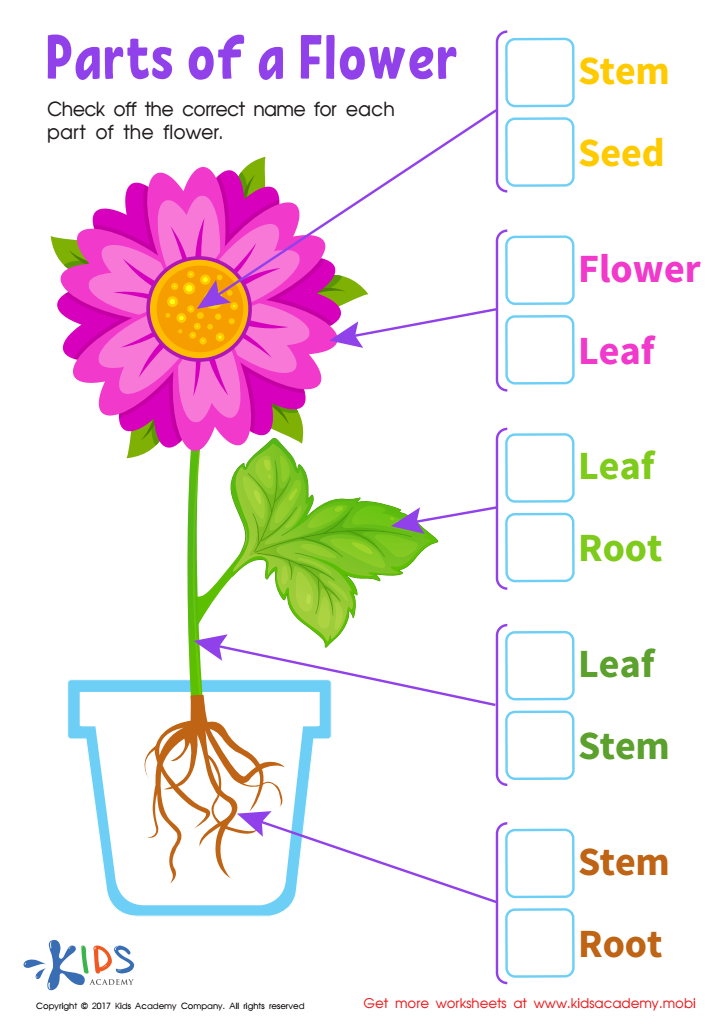Life Science Worksheets for Ages 3-7
3 filtered results
-
From - To
Explore the wonders of nature with our engaging Life Science Worksheets designed for ages 3-7! These carefully crafted resources cultivate curiosity and foundational knowledge about the environment, plants, animals, and ecosystems. Our worksheets feature fun activities such as coloring, matching, and discovery prompts that encourage young learners to observe and interact with the world around them. Each worksheet is aligned with educational standards to promote critical thinking and STEM skills. Perfect for classrooms and home learning, these worksheets foster a love for science while helping children build essential skills. Download and ignite the imaginations of your little explorers today!


Parts Flower Printable


Herbivores Printable


Carnivores Worksheet
Parents and teachers should care about Life Science for ages 3-7 because it lays the foundation for young children’s understanding of the world around them. Introducing concepts of biology, ecology, and even basic environmental science fosters curiosity, critical thinking, and a sense of wonder about life. At this age, children are naturally inclined to explore, question, and learn about living things, from plants and animals to human bodies and ecosystems.
Engaging with life sciences supports cognitive development, as children learn to observe, classify, and comprehend relationships in nature. It enhances inquiry skills, encouraging them to ask questions and seek answers, vital for lifelong learning. Furthermore, understanding life sciences promotes environmental stewardship and empathy towards living beings, instilling core values of respect and responsibility.
Additionally, incorporating life science into early education can align with important educational standards and provide a holistic approach to learning, integrating areas such as math and literacy in real-world contexts. Ultimately, fostering an appreciation for life sciences at a young age equips children with knowledge and skills crucial for informed decision-making, paving the way for more scientifically literate and conscientious adults. It's an investment in future generations' understanding and care for their environment and well-being.
 Assign to My Students
Assign to My Students





.jpg)









